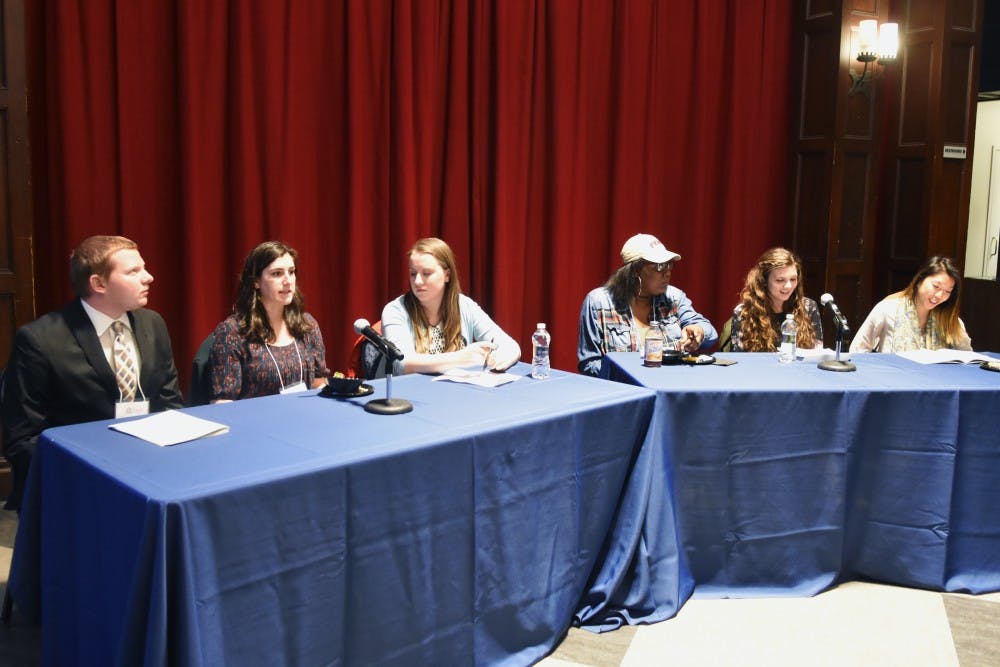
Following the presidential election, both liberals and conservatives worried that partisan polarization may prevent civil discussion across party lines. In response to this concern, leaders from Penn and a Christian university outside Philadelphia planned two discussions to bring together students with opposite political beliefs.
On Tuesday evening, students and faculty from Penn and Cairn University, formerly called Philadelphia Biblical University, gathered in Houston Hall for a discussion moderated by civic dialogue experts Chris Satullo and Harris Sokoloff. Satullo is a former professional in residence at the Annenberg Public Policy Center.
Penn Graduate School of Education professor Jonathan Zimmerman helped organize the event, called “Politics in the Age of Trump: Speaking Across our Differences,” to promote dialogue between students and faculty from two institutions with contrasting political profiles.
“I decided to organize the event because I was distressed at the amount of political polarization in the country,” he said. “Our democracy is premised on the ability of people to speak across their differences. My fear is that we are not doing that and in my modest way I wanted to try to bridge that.” Zimmerman also helped organize a discussion between students from the two schools at Cairn, which took place on Feb 7.
During the event, Satullo and Sokoloff asked a panel of three Penn students and three Cairn students questions about topics ranging from personal political views and voting experiences to more general topics of abortion and immigration policy. Approximately 100 students from both schools sat at tables in front of the panel, where they discussed each question in small groups after panelists spoke. Individuals from both universities described the reasons they voted for either President Donald Trump or Hillary Clinton.
When asked about his vote during the presidential election, Cairn undergraduate Cody Skaer said he was disappointed with both presidential candidates.
“Going into the election, I did not think Trump would get elected, and when he did, it took me a long time to come out of the stupor of shock,” Skaer said. “I talked to a lot of people who voted for him after the election. If I could sum up their general feelings in one brief summary, I would say the view was that one candidate’s flaws were not as bad as the other candidate’s flaws. There was not innate defense of the rhetoric.”
While the student panel included both Clinton and Trump supporters, they all agreed that neither candidate represented all of their beliefs. Cairn undergraduate Brianna Youngs said she thought a lot of people voted based on partisan identification.
“I think in the end a lot of people had to go with what their root political viewpoints were, rather that looking at the two kinds of terrible,” she said.
Students praised the civility of the evening's discussions and agreed that open-mindedness was essential for any successful political conversation.
“I came in incredibly skeptical and prepared to have my guard up on the defensive, but I thought there was some really awesome discourse,” College senior Abbie Starker said. “I think it was a great starting point, but we all came in willing to have a conversation and not everyone is there yet. I think it is really important to expand these conversations and find a way to make people more open to having them.”
The Daily Pennsylvanian is an independent, student-run newspaper. Please consider making a donation to support the coverage that shapes the University. Your generosity ensures a future of strong journalism at Penn.
Donate






